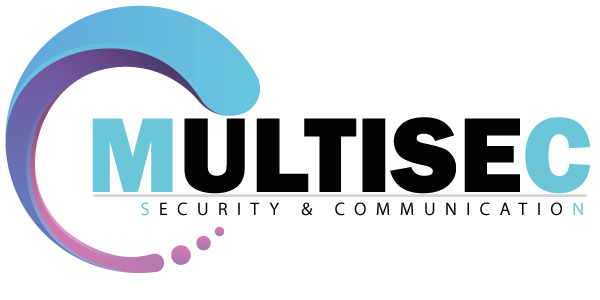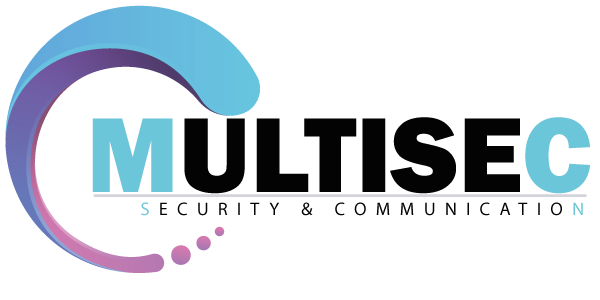People who don’t know much about sobriety think that if you’re sober you must be a member of AA and spend your nights in church basements drinking coffee. AA is just one of many pathways to recovery, and it is not a requirement for being sober. Some people get sober on their own, and some people use other programs like Refuge recovery, SMART recovery, online recovery groups, or other 12-step programs.
- Join the thousands of people that have called a treatment provider for rehab information.
- Developing and maintaining a healthy lifestyle can help you heal from the effects of addiction, physically and emotionally.
- Factors like age, income, ethnicity, religion, family, and job can play a role.
- You can select from various options, including access to group meetings, outpatient counseling services, sober living homes and programs to connect with other alumni for help and support.
- The belief that simply stopping substance use is a choice for everyone — and that a failure to do so reflects a moral weakness or deviance — is incorrect, outdated, and harmful.
Should you or a loved one struggle with addiction, don’t let these myths stand in your way of seeking help. The common false belief that people are “always addicts” creates myths about addiction and recovery a damaging label. Here at Whispering Oaks Lodge, we don’t agree with this view. We believe that people, even those that relapse, can change and grow beyond their addiction.
Myth #18: A successful recovery means complete abstinence.
While I was too prissy to try LSD, heroin or Oxy, I loved blow since it kept me from eating for three days. Before I put my entire bank account up my nose, I committed to a year of one-on-one talk therapy with Dr. Woolverton. A psycho-pharmacologist thought I had Attention Deficit Disorder with Hyperactivity and prescribed Adderall. It made me feel like a speed freak, so I threw those pills away. Addiction can affect anyone regardless of personality, age, race, and upbringing. However, there are specific genetic, social, and psychological risk factors that place someone at a higher risk for addiction.
- Inaccurate and outdated beliefs around SUD, treatment, and recovery abound, but with curiosity, education, and compassion, we can all deepen our understanding of this complex issue.
- Dual diagnosis and understanding the effects of prescription drugs are other aspects related to addiction and recovery.
- In Episode 40, Jamie and Paige examine the myth of anger management.
- Listening to them share their stories and seeing how far they have come can provide encouragement and motivation on the tough days.
Understanding that recovery isn’t always a straight line allows for a kinder, more realistic approach to the healing process. Welcome to everyone looking to learn more about addiction and recovery. Here at Whispering Oaks Lodge, we think that learning can help overcome fear and negative judgments.
Some common misconceptions about addiction can be damaging. Learn why drug & alcohol addiction isn’t a moral failing.
The truth of recovery is that it’s a tough but rewarding trip. By understanding the fantasies compared to truths, people can travel through this journey with knowledge and power. One common misconception is that once someone finishes treatment, they are cured of addiction. Recovery is an on-going process that needs continuous effort and sustained commitment. It means making huge changes in lifestyle and creating healthful methods to stay sober.
It’s a consequence of various factors like genetic predisposition, environmental influences, and psychological vulnerabilities. Willpower alone is not enough to overcome addiction, highlighting the requirement for proper treatment and support systems. Additionally, addiction can affect anyone regardless of age, income, ethnicity, religion, family background, or career. Misconceptions about addicts are rife in society, yet it’s key to ditch these distorted ideas and push for understanding. Addiction is a complex illness that’s not much comprehended by the medical world. There is social prejudice around addiction which can put off folks from asking for help and talking about the impact of addiction.
If you have a high alcohol tolerance, you don’t have a drinking problem.
This is no truer than saying drinking alcohol, shopping, playing video games or using mobile phones, sex, or love are signs of despair. In other words, doctors were doing wonderfully, although opioid and other drug deaths continued to surge. The clear path forward based on Dr. Harris’s remarks was for physicians to redouble their efforts to curtail painkiller prescriptions. I answered that this was a logical and true answer, since getting drugs https://ecosoberhouse.com/ on the street was always more deadly than taking drugs under medical supervision. But I added that this was not a sufficient explanation for drug deaths due to everything from stimulants to the whole array of depressant-analgesic drugs rising in lockstep. You will also encounter medical staff and counselors who are experienced in guiding patients through treatment and are committed to encouraging you through every step of the process.
- Exploring different treatment options and making changes to support sobriety may be needed in order to be successful.
- Addressing mental health and addiction is vital for many reasons.
- Erasing these walls and making a safe environment for non-judgmental conversations is key in assisting those on the way to recovery.
- Creating a secure atmosphere for open and non-judgmental conversations is essential to addressing stigmatization of addiction.
- Mental health, social support systems, and co-occurring disorders should all be considered.
- The truth of recovery is that it’s a tough but rewarding trip.
- By doing all this, we can break down myths and misconceptions and promote understanding, compassion, and support for addiction and recovery.
Recovery from addiction is an ongoing process because drug addiction is a chronic disorder. Myths around addiction create harmful stigmas, which often result in those suffering never seeking the help they need. We must spread accurate information to dispel myths and challenge stereotypes. Creating a secure atmosphere for open and non-judgmental conversations is essential to addressing stigmatization of addiction. This allows individuals to share without fear of judgment or shame, encouraging empathy and compassion. Another myth to debunk is that only “bad” people get addiction.
Understanding the Complex Nature of Addiction
Let’s unravel the layers of this complex disease and gain insights into the realities of addiction and recovery. There are many people who can use multiple substances and never develop an addiction, while others can use a substance only once and quickly spiral out of control. The potential for addiction is often made up of numerous factors including genetic predisposition, environmental factors, psychological disorders, and upbringing. While initial use may be a choice, over time, continued use can make changes in the brain that make it difficult to stop. This is why relapse is common and many will need multiple attempts at recovery before it is successful. Not only that, but a side effect of substance abuse is that the person using substances will distance themselves from sober friends and family in favor of being with others who also use.
- Biologically, some individuals may have a predisposition to addiction due to genetic factors that affect the way their brains respond to substances.
- Treatment attempts to tackle these factors and equip people with the means to control cravings, cope with stressors, and practice healthier coping methods.
- Dual diagnosis is common in substance use disorder, thus mental health must be addressed during treatment.
- Join us in this compassionate environment for recovery with Sandstone Care.
- Addiction’s a genuine illness that requires the right treatment, not just behavioral modifications.
- There is a notion that a person with an addiction wants to live that life and chooses it over everything else.
Educating others about addiction and providing accurate information is key in dispelling the stigma surrounding this illness. Addiction is a complex disease, but recovery is always possible. Even when used correctly, prescription medications can have negative effects.
Myth #4: It Doesn’t Count as Treatment if I Need Medication
By recognizing addiction as a complex disease and addressing it with compassion, we can help someone on their road to recovery. Let us recall not to judge an addict by their addiction, as they are much more than their demons. It’s essential to recognize that addiction is an illness that can be treated behaviorally. By disproving myths and misconceptions surrounding addiction, we can promote a more compassionate and effective approach to treatment. Waiting for “rock bottom” before seeking help can be risky and result in further harm. Seeking treatment should be seen as a pro-active step towards wellness, not a miracle cure.
At Safe Harbor Recovery Center, we offer residential programs for people who could most benefit from being at treatment around the clock. We also offer partial hospitalization for people who are best served by returning home each day. People with substance use disorders don’t lack willpower; substance use changes the brain and overrides willpower through physiological processes. Skip the Monday blues and give a big hello to Primary Therapist at Lantana, Chip Eggleton, on this #MeetTheTeam Monday.


Leave a Comment